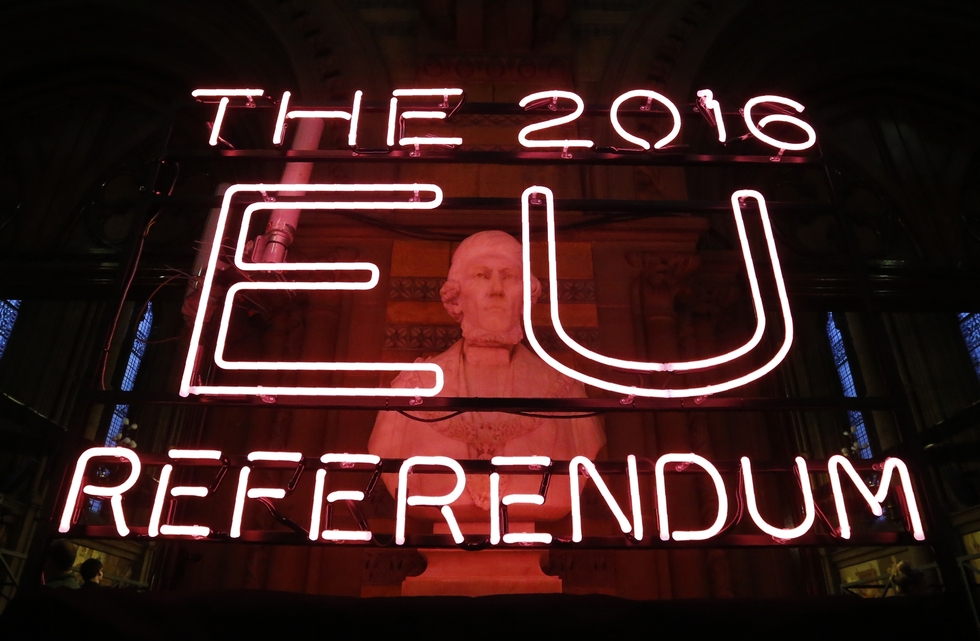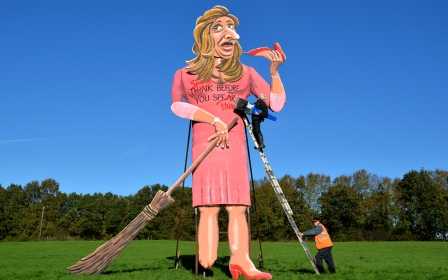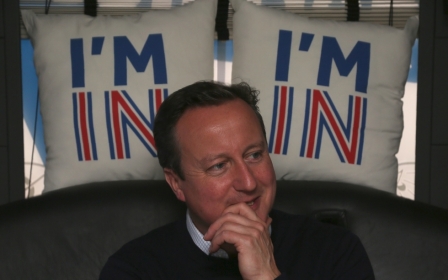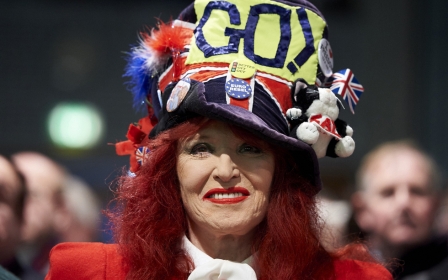Britain's Arab Spring...

Last month Middle East Eye editor David Hearst and I paid a pilgrimage to Sidi Bouzid, the central Tunisian town where street vendor Mohamed Bouazizi set himself alight on 17 December 2010.
This was the act of desperation which ignited the Arab Spring. At first it seemed to provide hope that an ugly era of despotism and economic inertia across the Middle East and beyond could come to an end.
The Arab Spring was indeed a great democratic moment. But it has also led to chaos and horror in Syria, Libya and Egypt – though mercifully not in Bouazizi’s native Tunisia.
The decision of the British people to vote No in yesterday’s European referendum was another revolutionary moment.
We in Britain have been part of an explosion of popular feeling against the morally bankrupt political class which has given Britain the Iraq invasion, the exchange rate mechanism debacle and the banking crisis of 2008.
I voted Leave yesterday because I believe that the European Union was sucking democracy out of Britain. It has been sucking democracy out of every other part of the European continent as well.
And I expect that the British referendum vote will certainly set off a chain reaction across an economically sclerotic and politically moribund European continent.
Large parts of Europe are in distress. The single currency, dogmatically imposed by an arrogant and out-of-touch elite, has proved a disaster. This job-destroying euro economic experiment has driven youth unemployment up to a horrifying 50 percent in large areas of Spain, Italy and Portugal. The Greek economy has been destroyed.
Europe is crying out for change, and now Britain has shown the way. We reformers should brace ourselves for resistance.
Angela Merkel is poised to play the same role as the late King Abdullah of Saudi Arabia in the Arab Spring. Merkel will be the Prince Metternich of the counter-revolution, battling to restore the existing order.
I don’t believe the formidable German chancellor can succeed. In the wake of the British decision, Greece will surely cease to be part of the single currency. When it leaves, a period of initial chaos will be followed by the return of economic growth.
Almost certainly there will be a chain reaction across southern Europe. Italy, Spain and other southern European countries will once more be able to stand on their own feet economically.
Politically there will be benefits as well. Remember that the rise of the European Union has paradoxically coincided with the abolition of democracy in many European countries. Soft coups d’etat engineered by the European central banks in alliance with the IMF have removed democratically elected governments in Italy and Greece.
As with the Arab Spring, there is cause for apprehension as well as celebration. We have every reason to fear the rise of far-right parties across Europe. Indeed, thanks to the prolonged period of austerity which Europe has already suffered, they are already resurgent in France, Germany, and across much of central Europe.
It’s no coincidence that Robert Fico, prime minister of Slovakia, who takes over the rotating presidency of the European Union on 1 July, is a bigot who wants to ban Muslims.
In Britain too, Muslims rightly fear Nigel Farage’s United Kingdom Independence Party, which has frequently demonised law-abiding Muslims.
But so did David Cameron, Britain’s soon-to-be former prime minister. It is completely wrong, as many advocates of the European Union assert, that racism and bigotry are confined to the anti-European Union cause. They are alive and well inside the EU too.
So we all need to be careful in the very difficult months and years ahead. I believe that the restoration of democracy and prosperity to Europe can make the entire continent a freer, better and more stable place.
- Peter Oborne was named freelancer of the year 2016 by the Online Media Awards for an article he wrote for Middle East Eye. He was British Press Awards Columnist of the Year 2013. He resigned as chief political columnist of the Daily Telegraph in 2015. His books include The Triumph of the Political Class, The Rise of Political Lying, and Why the West is Wrong about Nuclear Iran.
The views expressed in this article belong to the author and do not necessarily reflect the editorial policy of Middle East Eye.
Photo: A neon sign for the 2016 referendum on whether the UK will remain or stay in the European Union, is attached to the doors of the announcement hall in Manchester Town Hall, northwest England on 23 June, 2016 (AFP).
This article is available in French on Middle East Eye French edition.
New MEE newsletter: Jerusalem Dispatch
Sign up to get the latest insights and analysis on Israel-Palestine, alongside Turkey Unpacked and other MEE newsletters
Middle East Eye delivers independent and unrivalled coverage and analysis of the Middle East, North Africa and beyond. To learn more about republishing this content and the associated fees, please fill out this form. More about MEE can be found here.





